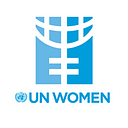In Vanuatu, women tackle drought to restore livelihoods after Cyclone Pam
On 13 March, 2015 Vanuatu was hit by Category Five Cyclone Pam, the worst disaster in the island nation’s recent history. More than half the population (of more than 860,000) was affected and around 96 per cent of crops were destroyed, leaving many women without food or produce to sell, which was their only source of income. In the months following the cyclone, a prolonged El Niño-fueled drought prevented replanting, causing months of crop failure, food insecurity and the decimation of the livelihoods of market vendors, majority women. Below are portraits and testimonies of the women who are part of the Silae Vanua Market Vendor Association, which is supported by UN Women.
“People are coming from other villages and washing up river from where we get our drinking water. We are trying to provide some proof the water is being ruined. The quality of our water is a big concern.”
“We made a place for the women’s association to meet and talk but it was destroyed in the Cyclone. Now I have to walk to every house to visit the women.”
“After Cyclone Pam there was no food. The island food was destroyed. Now we just buy rice. Then we planted manioc, small yam, taro, island cabbage. But it’s not ready because of El Nino. I’m looking forward to the next planting season but I’m worried about the sun.” — Roslyn Moli
“I use the salt water and the small amount of freshwater we have for the children. Breastfeeding is hard when we don’t have much water.”
“Sometimes I feel sad and I’m worrying. The mamas need to clean but the stream is dry. The spring runs now but it is small.”
“It is hard work but it is good. You are put here to live in this world to live for a purpose; to look after the community and the village.”
“When we have money we go to the market to buy fruit. We even buy paw paw and pineapple. The children run around but afterwards I can’t give them water, even though they ask for it.”
UN Women has been working with market vendors, market councils, provincial and national governments in Vanuatu, as well as the Australian Government, to help women restore their livelihoods and build resilience to future external shocks like Cyclone Pam. The majority of market vendors in Vanuatu are women, however, they are often left out of the decision-making processes that govern their workplaces. UN Women through its Markets For Change project helped establish vendor associations in Vanuatu and other Pacific islands. Vendor associations provide women with an opportunity to take a leadership role in dealing with local government and market management to ensure their needs are taken into consideration when it comes to bylaws, infrastructure and security.
